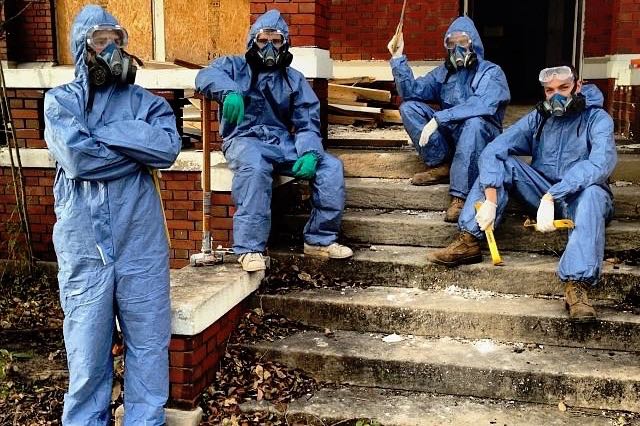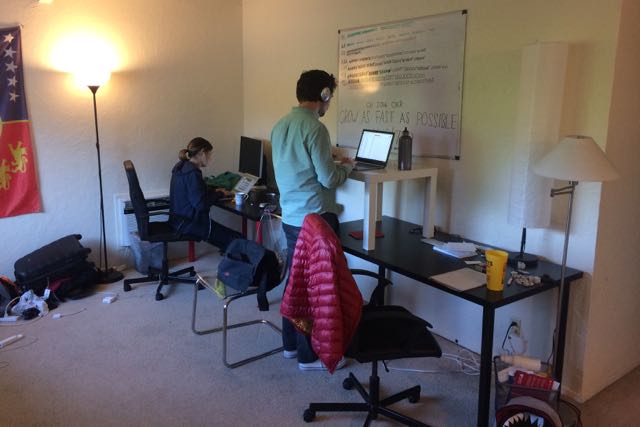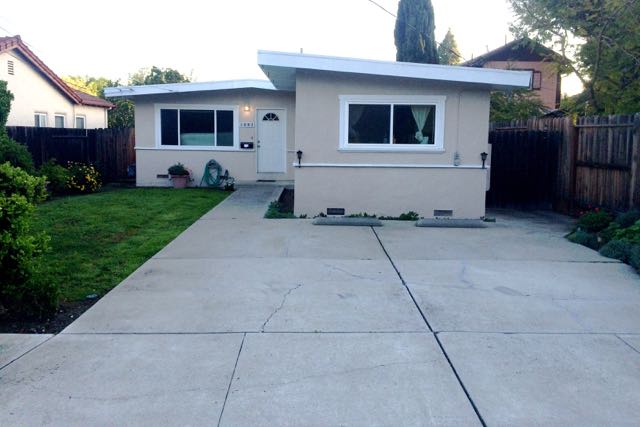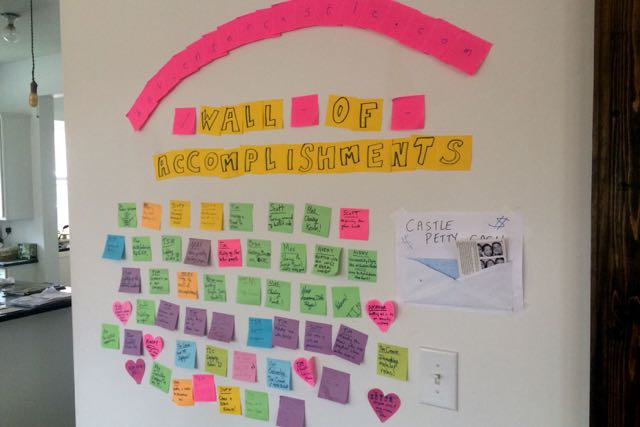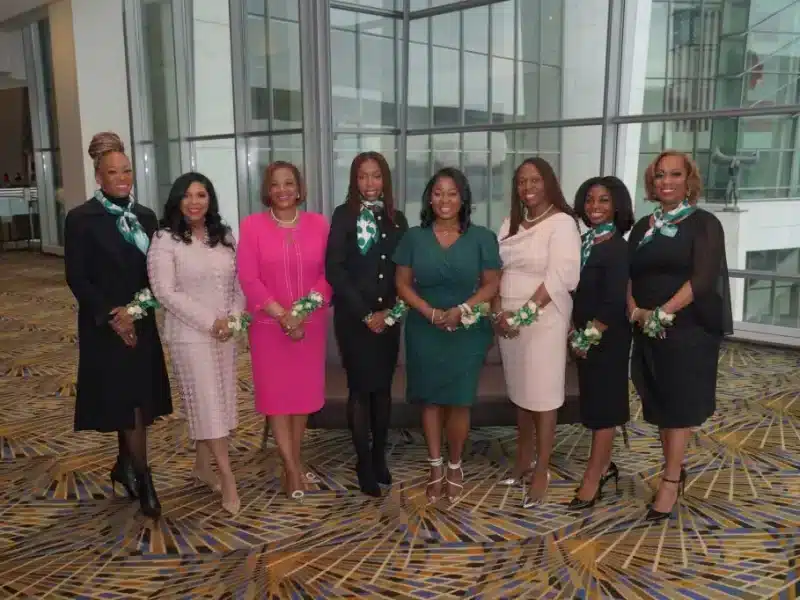Tech startup finds creative solution to living and working in two different cities
Many startups find Silicon Valley oversaturated and are seeking opportunities in cities with nascent tech scenes. Castle, a property management tech company, is doing just that in Detroit.
‘Silicon Valley’ is synonymous with ‘startup.’ Every year, countless programmers design apps and start tech companies in the hopes that their idea will get angel investors and multimillion dollar valuations.
Some, however, are finding Silicon Valley oversaturated. And they’re seeking opportunities in cities like Detroit with nascent tech scenes. Castle, a property management tech company, is doing just that.
“We started Castle because we wanted to be a part of creating something new, and the Bay Area tech scene is hardly something new,” says Max Nussenbaum, cofounder & CEO of Castle.
Castle is a startup worth paying attention to — they approach a local issue, property management, in an innovative way. But being a notable startup in a tech scene that is generously described as fledgling has its limitations. So this year, Castle’s small-but-growing team started spending half of its time building its business in Detroit, while learning how to scale it faster at a prestigious Silicon Valley startup accelerator.
Venture for Detroit
Castle’s three cofounders are poster boys for the cliche of “new Detroit”: young, white males from out of state. Their model is flexible enough that it likely could have been started anywhere, but they developed an appreciation for Detroit during a 2012 fellowship as part of Detroit’s inaugural class of Venture For America (VFA), a Teach For America-like non-profit that pairs promising college grads with startups in economically challenged areas. Fellows are paired with a local company or organization that deals primarily with startups.
COO Tim Dingman put his electrical engineering degree to work with Accio Energy, a startup that’s reinventing the wind turbine by harnesses the wind’s energy through water mist and static electricity.
Nussenbaum worked for Are You a Human, a Detroit-based startup that’s modifying CAPTCHA with simple online games. Nussenbaum is a Wesleyan University graduate who also appeared on “Who Wants to Be a Millionaire” and writes captions for New Yorker cartoons. He has his own website of failed submissions called That’s Not Funny, Max.
CTO Scott Lowe, who worked in software at a couple of Detroit startups, describes himself as “recklessly idealistic, generally irreverent, student of reality” who is “passionate about building things, from computers and web apps to houses and startups.”
All three spent their last year of fellowship at VFA co-founding Rebirth Realty with another VFA fellow, Sean Jackson. The company purchased a foreclosed mansion on the edge of greater downtown Detroit in the 2013 Wayne County tax foreclosure auction. The house was little more than a shell of a structure across the street from an abandoned hospital. The group spent the next two years raising money and renovating the house into a communal living quarters for future Venture For America fellows.
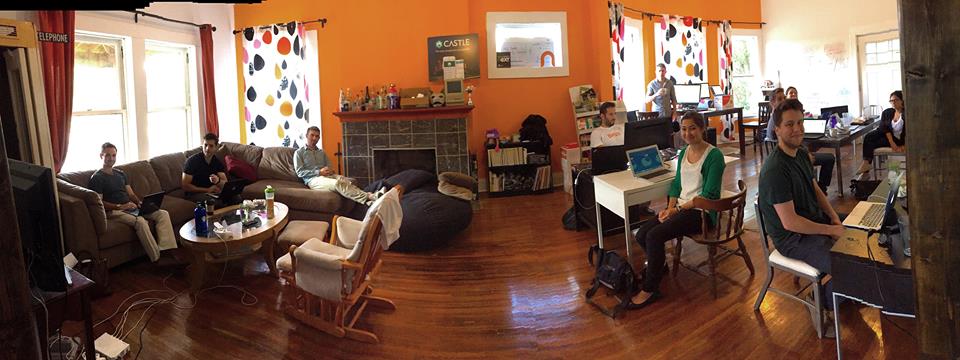
Today the abandoned hospital is gone, while Castle and Banza (another fast-growing startup launched by a VFA fellow) calls that end of the Virginia Park neighborhood home, working primarily from its large living and dining rooms.
“Castle could never have gotten off the ground or become what it’s become today anywhere other than Detroit,” Lowe says. “We probably wouldn’t have even come up with the idea for Castle if we hadn’t been in Detroit, where we were exposed to a different problem set than what we would have seen in a place like San Francisco or New York.”
Castle is a prime example of success for Venture For America — its fellows absorbed VFA’s mission of improving their adopted city while launching a startup with bright prospects. Castle has raised hundreds of thousands of dollars in seed capital and been admitted to Y Combinator in Silicon Valley, arguably the most prestigious startup accelerators around. It’s easily one of VFA’s biggest success stories so far.
Castle’s success is good harbinger of Venture For America’s potential, but the program is far from a guarantee to reinvent Detroit’s economy with new blood. Of the first class of 40 VFA fellows, 12 went to Detroit. Seven of those 12 fellows still call Detroit home. Four are working in startups (Castle and Banza), one still works for his fellowship employer, one started a pedicab company, and another is writing a book on spirituality.
Those that remain do so because they see opportunity in a place they want to pursue it. “One of my driving beliefs is that the best opportunities are found by looking where other people aren’t,” Nussenbaum says. “That’s why I moved to Detroit, and it’s why Castle started to solve an un-sexy problem, property management, that many other people were avoiding.”
Splitting time
The idea of bridging Detroit and Silicon Valley sounds great in an elevator pitch, but is much harder to pull off in real life. Castle got to do it while taking part in the Y Combinator accelerator class last winter, but faced a number of obstacles. Mainly, how do you manage hundreds of rental properties (and adding more all the time) from a different city?
The answer: rotation.
Castle’s team is composed of its three cofounders and about a dozen employees who handle everything from writing code to handling property management calls. They all split time between the company’s home base in Detroit and its temporary workspace in Mountain View, California. About one-third of the team stays in Detroit while the rest are in California. Each team member will spend a few weeks in one location before rotating back again.
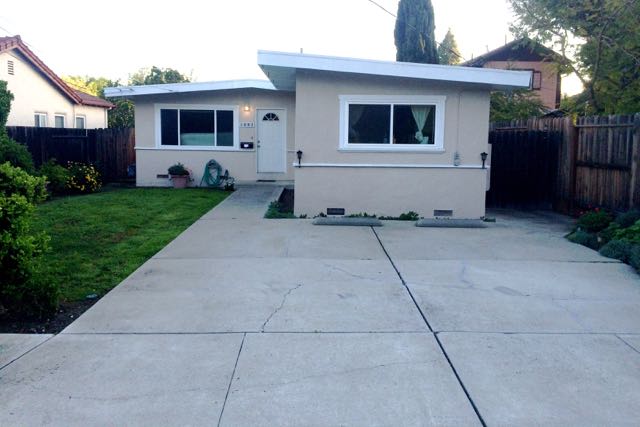
Their house and office in Mountain View crams about half a dozen people into a building not much bigger, or different, than a double-wide trailer. Each team member gets some desk space on whatever table-like surface is available, plus their own room.
The first Castle employees typically stir around sunup with the rest of the team up not much longer after that. A team meeting begins at 7:30 a.m. PST to better coordinate with the Detroit contingent working a few hours ahead.
“One convenient result of the time difference is a natural segmentation of my day,” Dingman says. “Most of the property management takes place during business hours in Detroit, which is 6 a.m. to 2 p.m. in Mountain View.”
Dingman manages the company’s properties, and as such, interfaces the most with Detroit. If a sink gets clogged or a lease needs to be signed, it’s his responsibility.
“The day-to-day management of properties keeps my head in Detroit most of the time,” Dingman says.
On a cold day in March he starts off at Castle’s home base in Virginia Park, handling everyday management duties and doing laundry. His flight for San Jose International Airport leaves mid-afternoon so the 20-something can wrap up his workday and casually coordinate with his team before leaving. He’s working, but not in a rush.
In Detroit Metro Airport’s parking lot, Dingman texts a picture of where he parks the company’s used Honda Civic for the Castle employee returning to Detroit the next day. He is smart when he travels, packing lightly and sliding through TSA pre-check security line. Dingman doesn’t dress like a jet-setting businessman either, preferring blue jeans and red flannel.
Dingman, an avid fan of underdogs, insists on calling a Lyft when he arrives in San Jose, doing his little part to prevent an Uber monopoly in the fast-growing ride-sharing market. By that point it’s night in California and he only has a short time to coordinate with his team there before calling it a day.
Growth, growth, and more growth
The endorsement of Y Combinator is one reason Castle is already viewed as such a success.
Castle’s story of saving a house from demolition and launching a startup in Detroit played a critical role in its acceptance late last year. The selection committee believed a team that can rebuild a house together in Detroit could excel at working together to build a tech startup.
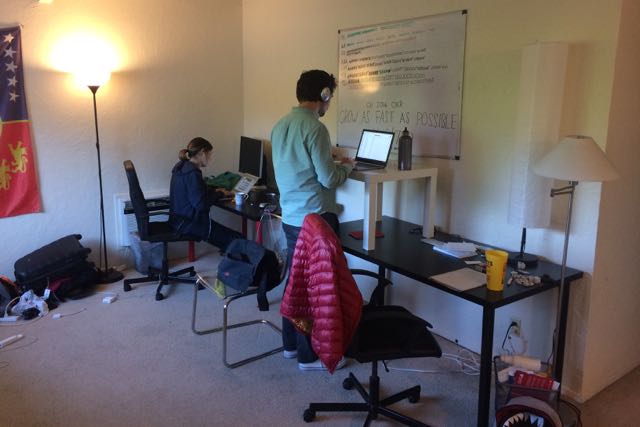
At the time, Castle has already raised a few hundred thousand dollars in seed capital and was angling to secure more than $1 million in an angel round a few weeks later. Acceptance to Y Combinator came with a $120,000 investment from the accelerator and an exponential bump in valuation in the eyes of investors.
And for good reason. Venture capitalists invest in startups with the expectation of getting a return in less than 10 percent of them. Instead, they’re looking for a home run worth millions, if not billions. An inordinate number of the nearly 900 startups that have passed through Y Combinator in its first 10 years have found success, according to a Wall Street Journal story on Y Combinator published last fall. Seventy percent are still in business and 12 percent have been acquired. A handful are worth billions, including AirBnB, DropBox, Instacart, and Zenefits.
Y Combinator requires its startups to set up shop somewhere in Silicon Valley during the three months they go through the accelerator. While there, they focus on growth, growth, and more growth. It’s a message Castle’s team has heard loud and clear.
Everywhere in Castle’s home office there are physical signs reminding them of the importance of growing faster. For Castle that’s measured in the number of rental units they manage, which they’ve doubled every quarter since its launch. Now, Castle has nearly 500 units under management.
The startups at Y Combinator spend much of the three months prepping for “Demo Day,” an event at the end of the program where the startups pitch to a crowd of investors. But where Y Combinator really helps is in guidance. The accelerator hosts weekly office hours and networking events on Tuesdays with the accelerator’s network of mentors and investors. Those events are only open to a startup’s co-founding team, and it’s why Dingman flew out for San Jose that Monday afternoon.
“The most impactful advice from YC usually comes during individual office hours, where one of our group partners spends 20 minutes with the three of us when we need sage advice on an issue we’re having,” Dingman says. “Each session brings at least some small tweak in our direction.”
One of those tweaks is Castle’s growth plan. It originally aimed to open in new markets after getting a foothold in Detroit midway through this year. The idea was to grow faster by spreading out across the country. One of the Y Combinator mentors advised against this, saying there is more value in committing to that first market than spreading yourself too thin too fast. There will always be a first wave of easy customers to pick up in each market, but a higher-quality business grows its clientele beyond the low-hanging fruit. Castle is now laser-focused on Detroit. New market expansion has been postponed until the third quarter of 2017.
“As we expand to new cities, we plan to continue our focus on underserved markets like Detroit,” Nussenbaum says. “Although I find it quite funny, and sad, that the startup world is so hyper-focused on San Francisco and New York.”
Jon Zemke is Model D’s news editor and a Detroit-based reporter. He is also a landlord. One of his houses is managed by the Castle team.
